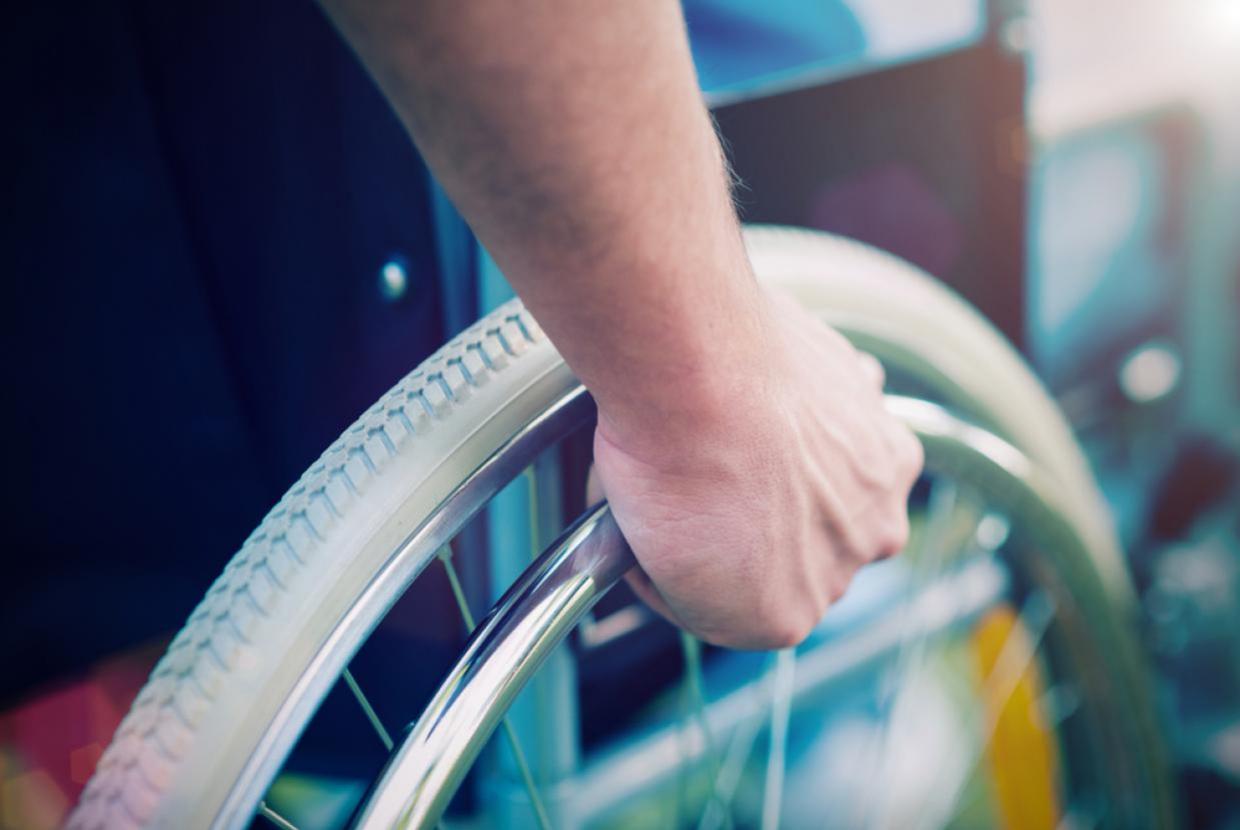Benefits To Help With Disability Or Care Needs
If you have care needs or a disability – or you’re caring for someone who does - there are benefits to help you manage with the extra costs. Some of these benefits aren’t affected by income or savings, and you might be able to keep them if you have to go into a care home.
What benefits can I claim?
These are main benefits you can claim to help with the extra costs of your personal care needs or disability:
- Personal Independence Payment (PIP) or Attendance Allowance (if you've reached state pension age) – these are designed to help with the extra costs you face because of your care needs or disability. They’re not means-tested, so don’t depend on your income or savings
- Council Tax reduction – some of these relate to your disability or care arrangements. They’re are not means-tested.
- Universal Credit – more details below.
If your income and savings are low
You might also qualify for means-tested benefits to top up your income. Depending on your age and circumstances, these might include:
- the housing cost element of Universal Credit if you're under state pension age
- Housing Benefit if you (and your partner if you have one) have reached state pension age
- housing costs support
- Council Tax reduction
- Pension Credit (which might include an extra amount if you have a disability).
If someone spends a lot of time looking after you and has a low income, they might be able to claim carer’s benefits. This might include Carer’s Allowance and the carer’s element of Universal Credit.
Why it’s important to claim all the benefits you’re entitled to
These benefits can help you to live safely, comfortably and as independently as possible. Even if you feel you can manage without them, if you qualify – you have a right to claim them. Here are some reasons why it’s important to claim:
- Claiming everything you’re entitled to now might help your income and savings last longer.
- When your local authority (or Health and Social Care Trust in Northern Ireland) assesses your care needs, they’ll usually also carry out a financial assessment. This is to see whether they’ll help pay for the support you need. They’ll help you assess what benefits you’re entitled to claim. But you’ll need to make sure you claim these benefits as they’ll assume you’re getting them.
Attendance Allowance and the Pension Age Disability Payment
Attendance Allowance (for England, Wales and Northern Ireland) has been replaced by the Pension Age Disability Payment in Scotland.
Both are tax-free and aren’t affected by how much you have in savings, your income or whether you own your home.
You might be entitled to claim them if:
you’re State Pension age or over
you need help with personal care because of illness or disability. This could be a physical or mental disability, or a learning difficulty
your disability means you need help caring for yourself or supervision to ensure the safety of yourself or others.
You must have needed of care and support for at least six months.
If you’re terminally ill, you can claim Attendance Allowance or the Pension Age Disability Payment immediately and don’t have to wait six months.
Attendance Allowance and the Pension Age Disability Payment is based on the care you need – not the level of care you’re currently getting. So even if you don’t get support from a carer now, you might still be entitled to this benefit.
You can’t usually get Attendance Allowance or the Pension Age Disability Payment if you live in a care home and the local authority is paying for your care.
But you can still claim Attendance Allowance or the Pension Age Disability Payment if you live in a care home and are paying for it yourself.
You’ll get a lower rate if you need help in the day or night, and a higher rate if you need help both day and night.
If you live in England, Wales or Scotland, Independent Age can help you with your Attendance Allowance or Pension Age Disability Payment application. They provide free and practical support for older people on issues like money, health and care.
Personal Independence Payment and Adult Disability Payment
If you’re under State Pension age and have difficulty getting around or doing everyday tasks, or both, you can make a claim for Personal Independence Payment (PIP) in England, Wales or Northern Ireland, or Adult Disability Payment (ADP) in Scotland.
PIP and ADP are tax-free, paid every four weeks and not affected by how much you have in your savings or income.
In Scotland, PIP has been replaced by the Adult Disability Payment (ADP). The assessment criteria and award amounts are the same as PIP.
If you’re already claiming PIP in Scotland, Social Security Scotland will contact you about moving to ADP at some point. You cannot claim ADP and PIP at the same time. You can check your eligibility for ADP on mygov.scot.
If you need to make a new claim for ADP, you can find out how to apply online or over the phone on mygov.scot.
There are two parts to PIP and ADP:
- A mobility component – which is paid if you need help getting around. Some people call it mobility allowance
- A daily living component – which is paid if you need personal care.
You must have had difficulties for at least three months and expect them to continue for at least nine months. But if you’re terminally ill you can claim PIP or ADP straightaway using a fast-track process.
There are two rates for each payment – which one you get will depend on how severe your needs are.
Council Tax discounts and exemptions
If you have a disability, you might qualify for more than one of the Council Tax discounts and reductions listed below.
Single person discount
If you live alone, you’ll get the single person discount of 25% on your Council Tax bill.
Some people in certain situations are also ‘disregarded’ for Council Tax. This means, if you live alone with one or more ‘disregarded’ people you’ll be treated as single for the purposes of Council Tax and get a 25% discount on your bill.
People who have a severe mental impairment and anyone who is a live-in carer (as long as the live-in carer is not the partner of the person being cared for or a parent of a child under 18) are among the list of people who are ‘disregarded’ for Council Tax.
You won’t get the discount if there is more than one adult living with you who doesn’t qualify. This discount isn’t affected by your income or savings. You can apply for this even if you don’t have a disability or care needs.
Severe mental impairment exemption
You won’t have to pay any Council Tax if your doctor certifies you have a severe mental impairment, such as Alzheimer’s disease and you live alone. This exemption isn’t affected by your income or savings. You'll need to use a special claim form and will be given a 100% reduction if you qualify. If you have had the condition for a while it is worth asking your council if you can get your claim backdated.
Disabled band reduction scheme
You might be able to show that you need a larger home because of your disability. For example, because you need an extra room (such as a downstairs wet room) or extra space to get around in a wheelchair (such as widened doorways).
In that case, you’ll be taxed as if your home is in a lower tax band. This reduces the amount you have to pay.
This discount isn’t affected by your income or savings.
Some home adaptations won’t make you eligible for this reduction, such as a stairlift or an external wheelchair ramp. The full list of what makes you eligible will change depending on your council.
Council Tax support/reduction scheme
If your income and savings are low, you might qualify for a reduction in your bill. Councils operate their own schemes, so the amount of the reduction varies depending on where you live. If you move permanently into a care home and your previous home is no longer occupied, you’re exempt from Council Tax.
Contact your local council to claim Council Tax discounts and reductions. Council Tax only applies to people living in England, Wales and Scotland. If you live in Northern Ireland and your income and savings are low, you might get a reduction in your rates through the Rate Relief Scheme. You might also get extra help if you have a disability or you’re a carer.
State Pension and Pension Credit
State Pension
The State Pension gives you a regular income when you reach State Pension age. It’s based on National Insurance contributions you’ve either paid in the past or were credited as if you had paid them – for example, while caring for children. The amount you get isn’t affected by your other income or savings.
Pension Credit
Pension Credit tops up your weekly income to a guaranteed minimum. The amount you get depends on your income and savings.
Pension Credit is the main means-tested benefit for people who’ve reached State Pension age. If you’re younger than this and your income and savings are low, you might qualify for other benefits instead.
You can qualify for a higher amount of Pension Credit – or means-tested benefits for younger people – if you’re severely disabled or a carer.
Lots of people who are entitled to Pension Credit aren’t claiming it. This is often because they don’t know about it.
But Pension Credit is a really important benefit. Getting it means you could qualify for extra financial support. For example, extra payments to help with the cost of living, Housing Benefit, Winter Fuel Payment and certain means-tested benefits.
You can claim online, over the phone or by post.
Help with housing costs
Rent payments
If you’re working age, rent your home and your income and savings are low – you might qualify for help with housing costs. This would be through Universal Credit, to help you pay your rent.
If you claim Pension Credit, you’ll also be automatically assessed to see if you qualify for Housing Benefit. This is paid by your local authority. So it’s important to make sure you claim it if you’re struggling with your rent.
Mortgage payments
Are you getting Pension Credit (or certain other means-tested benefits), you own your home and still have a mortgage? Then you can apply for government help to pay the interest on your mortgage through the Support for Mortgage Interest (SMI) loan scheme.
Using the SMI loan scheme means the government pays your mortgage interest for now. You repay the government from the proceeds when your home is eventually sold.
Other benefits
If you’re on a low income, you might also be entitled to other benefits and help with health costs.
Find out more from these organisations:
- For help to access welfare benefits, grants and other support, go on Turn2us.
- Find out more about help with health costs on NHS.
- If you’re in Northern Ireland, find out more about other benefits on nidirect.
Benefits for carers
If you’re caring for someone who’s ill or disabled, it can affect your financial situation too.
Help is available – you don’t have to be related to or live with the person you care for.
























